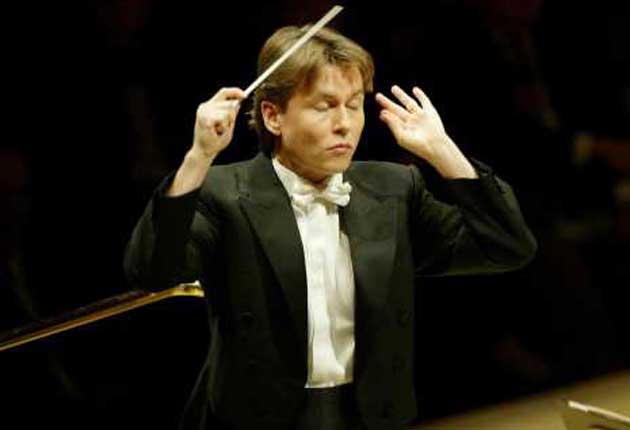Philharmonia Orchestra/Salonen, Royal Festival Hall, London

Arnold Schoenberg and Alexander Zemlinsky – pupil and teacher – reunited at the twilight's last gleaming of Romanticism. But where Schoenberg's masterpiece Verklärte Nacht was breathless with anticipation of new beginnings, Zemlinsky's rarely heard Lyric Symphony was going nowhere. If ever there was a concert of two halves, this was it.
There are few more auspicious beginnings in music than that of Verklärte Nacht. A thready pulse of violas holds one in the grip of indeterminacy – apprehensive, lost – until cellos, etching out a theme of sorts, provide the consoling harmony of direction. From these mysterious opening measures the most febrile music imaginable emerges, its overheated chromaticism acting as a metaphor for psychological distress. And even without reading the Richard Dehmel poem which inspired it you know instinctively that this music is about the process of unburdening, that on this moonlit night one woman must reveal to the man she loves that the child she carries is not his.
It is, in short, the most explicit and affecting word-setting not to use actual words and, in this outstanding performance from the Philharmonia under Esa-Pekka Salonen, Schoenberg's very distinctive musical syntax was rendered so lucid as to sound and feel like therapy. A sizable body of strings had the clarity and malleability of the original sextet version and, as Salonen laid down the final chord, aglow with arpeggios, you didn't need to see the word "transfigured" to know the outcome.
That is the problem with Zemlinsky's Lyric Symphony – the words (poems by the Bengali writer Rabindranath Tagore) are pretty much superfluous, the setting of them so uniformly unimaginative as to make one wish he had done a Schoenberg and simply used them as a catalyst for symphonic thought. No question that Zemlinsky was aping Mahler's Das Lied von der Erde with his hybrid concept, but images not words preoccupy him.
So, whilst we imagined what Mahler or Strauss might have done with the words, the dryly monochrome singing of Juha Uusitalo and the once lustrous Solveig Kringelborn, a voice that has lost its purity in pursuit of drama, did nothing to persuade us that these settings weren't vocally ungrateful. The orchestra played beautifully, but it was one sunset too many for this listener.
Subscribe to Independent Premium to bookmark this article
Want to bookmark your favourite articles and stories to read or reference later? Start your Independent Premium subscription today.

Join our commenting forum
Join thought-provoking conversations, follow other Independent readers and see their replies